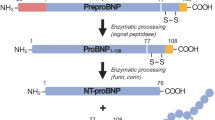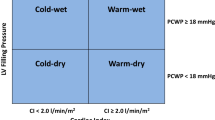Abstract
Carnitine is an essential amino acid involved in transporting fatty acids across the mitochondrial membrane. Fatty acids are a primary source of energy for the myocardium. Studies in adults demonstrated decreased carnitine levels in the ischemic myocardium, but subsequent exogenous carnitine supplementation showed improvement of myocardial metabolism and left ventricular function. However, only limited data regarding carnitine are available in pediatrics. A single-center retrospective, paired data study was conducted. Patients < 18 years, left ventricular ejection fraction (LVEF) < 55% by echocardiography, and had received at least 7 days of oral or intravenous carnitine supplementation between January 2018 and March 2021 are included in the study. Several endpoints and covariates were collected for each patient: before, one week after, one month after, and 6 months after carnitine supplementation. Univariate analysis consisted of an analysis of variance (ANOVA), followed by an analysis of covariance (ANCOVA) to model LVEF while adjusting for other variables. 44 patients included in the final analyses. LVEF significantly improved from 50.5 to 56.6% (p < 0.01). When LVEF was adjusted for other interventions (mechanical ventilation, afterload reduction, diuretic therapy, spironolactone), the estimated means demonstrated a significant increase from 45.7 to 58.0% (p < 0.01). Free carnitine level increased significantly (p = 0.03), and N-terminal-pro-brain natriuretic peptide (p = 0.03), creatinine (p < 0.01), and lactate (p < 0.01) all significantly decreased over the study period. Carnitine supplementation in pediatric patients with left ventricular systolic dysfunction may be associated with an increase in LVEF and improvement in laboratory markers of myocardial stress and cardiac output.
Similar content being viewed by others
References
Cave MC, Hurt RT, Frazier TH et al (2008) Obesity, inflammation, and the potential application of pharmaconutrition. Nutr Clin Pract 23(1):16–34. https://doi.org/10.1177/011542650802300116
Foster DW (2004) The role of the carnitine system in human metabolism. Ann N Y Acad Sci 1033:1–16. https://doi.org/10.1196/annals.1320.001
Rizzon P, Biasco G, Di Biase M et al (1989) High doses of L-carnitine in acute myocardial infarction: metabolic and antiarrhythmic effects. Eur Heart J 10(6):502–508. https://doi.org/10.1093/oxfordjournals.eurheartj.a059519
Liedtke AJ, DeMaison L, Nellis SH (1988) Effects of L-propionylcarnitine on mechanical recovery during reflow in intact hearts. Am J Physiol 255(1 Pt 2):H169–H176. https://doi.org/10.1152/ajpheart.1988.255.1.H169
Loomba RL, Villarreal E, Patel R et al (2020) The effect of carnitine supplementation on left ventricular function: lessons from current evidence and insights for future studies. Congenit Heart Dis 15:447–455
Aalen OO, Roysland K, Gran JM, Ledergerber B (2012) Causality, mediation and time: a dynamic viewpoint. J R Stat Soc Ser A Stat Soc 175(4):831–861. https://doi.org/10.1111/j.1467-985X.2011.01030.x
Rijnhart JJM, Lamp SJ, Valente MJ, MacKinnon DP, Twisk JWR, Heymans MW (2021) Mediation analysis methods used in observational research: a scoping review and recommendations. BMC Med Res Methodol 21(1):226. https://doi.org/10.1186/s12874-021-01426-3
Albert JM, Li Y, Sun J, Woyczynski WA, Nelson S (2019) Continuous-time causal mediation analysis. Stat Med 38(22):4334–4347. https://doi.org/10.1002/sim.8300
Berli C, Inauen J, Stadler G, Scholz U, Shrout PE (2021) Understanding between-person interventions with time-intensive longitudinal outcome data: longitudinal mediation analyses. Ann Behav Med 55(5):476–488. https://doi.org/10.1093/abm/kaaa066
Rudolph KE, Goin DE, Paksarian D, Crowder R, Merikangas KR, Stuart EA (2019) Causal mediation analysis with observational data: considerations and illustration examining mechanisms linking neighborhood poverty to adolescent substance use. Am J Epidemiol 188(3):598–608. https://doi.org/10.1093/aje/kwy248
Bind MA, Vanderweele TJ, Coull BA, Schwartz JD (2016) Causal mediation analysis for longitudinal data with exogenous exposure. Biostatistics 17(1):122–134. https://doi.org/10.1093/biostatistics/kxv029
Savla JJ, Putt ME, Huang J et al (2022) Impact of maternal-fetal environment on mortality in children with single ventricle heart disease. J Am Heart Assoc 11(2):e020299. https://doi.org/10.1161/JAHA.120.020299
Wang Y, Xu Y, Zou R et al (2018) Effect of levocarnitine on the therapeutic efficacy of conventional therapy in children with dilated cardiomyopathy: results of a randomized trial in 29 children. Paediatr Drugs 20(3):285–290. https://doi.org/10.1007/s40272-018-0284-2
Kothy A, Gamal Abd El Nasser Y, El Baky N, Kassas G, Elhalim A (2006) Therapeutic evaluation of L-carnitine in Egyptian children with dilated cardiomyopathy. J Med Sci 6:800–805
Khositseth A, Jirasakpisarn S, Pakakasama S, Choubtuym L, Wattanasirichaigoon D (2011) Carnitine levels and cardiac functions in children with solid malignancies receiving doxorubicin therapy. Indian J Med Paediatr Oncol 32(1):38–42. https://doi.org/10.4103/0971-5851.81889
Helton E, Darragh R, Francis P et al (2000) Metabolic aspects of myocardial disease and a role for L-carnitine in the treatment of childhood cardiomyopathy. Pediatrics 105(6):1260–1270
Scaglia F, Longo N (1999) Primary and secondary alterations of neonatal carnitine metabolism. Semin Perinatol 23(2):152–161. https://doi.org/10.1016/s0146-0005(99)80047-0
Sgambat K, Clauss S, Moudgil A (2021) Effect of levocarnitine supplementation on myocardial strain in children with acute kidney injury receiving continuous kidney replacement therapy: a pilot study. Pediatr Nephrol 36(6):1607–1616. https://doi.org/10.1007/s00467-020-04862-3
Winter S, Jue K, Prochazka J et al (1995) The role of L-carnitine in pediatric cardiomyopathy. J Child Neurol 10(Suppl 2):S45-51
Longo N, Amat di San Filippo C, Pasquali M (2006) Disorders of carnitine transport and the carnitine cycle. Am J Med Genet C Semin Med Genet 142(2):77–85. https://doi.org/10.1002/ajmg.c.30087
Zeiler FA, Sader N, Gillman LM, West M (2016) Levocarnitine induced seizures in patients on valproic acid: a negative systematic review. Seizure 36:36–39. https://doi.org/10.1016/j.seizure.2016.01.020
Author information
Authors and Affiliations
Contributions
All authors contributed to the study conception and design. Material preparation, data collection, and analysis were performed by NI, RSL, and KNM. The first draft of the manuscript was written by NI and RSL, a few paragraphs were written by RP in the discussion section, and all authors commented on previous versions of the manuscript. All authors read and approved the final manuscript.
Corresponding author
Ethics declarations
Conflict of interest
All the authors declared that they have no conflict of interest.
Additional information
Publisher's Note
Springer Nature remains neutral with regard to jurisdictional claims in published maps and institutional affiliations.
Rights and permissions
Springer Nature or its licensor holds exclusive rights to this article under a publishing agreement with the author(s) or other rightsholder(s); author self-archiving of the accepted manuscript version of this article is solely governed by the terms of such publishing agreement and applicable law.
About this article
Cite this article
Ikeda, N., Loomba, R.S., Patel, R. et al. Effect of Carnitine Supplementation in Pediatric Patients with Left Ventricular Dysfunction. Pediatr Cardiol 44, 720–726 (2023). https://doi.org/10.1007/s00246-022-03003-x
Received:
Accepted:
Published:
Issue Date:
DOI: https://doi.org/10.1007/s00246-022-03003-x




